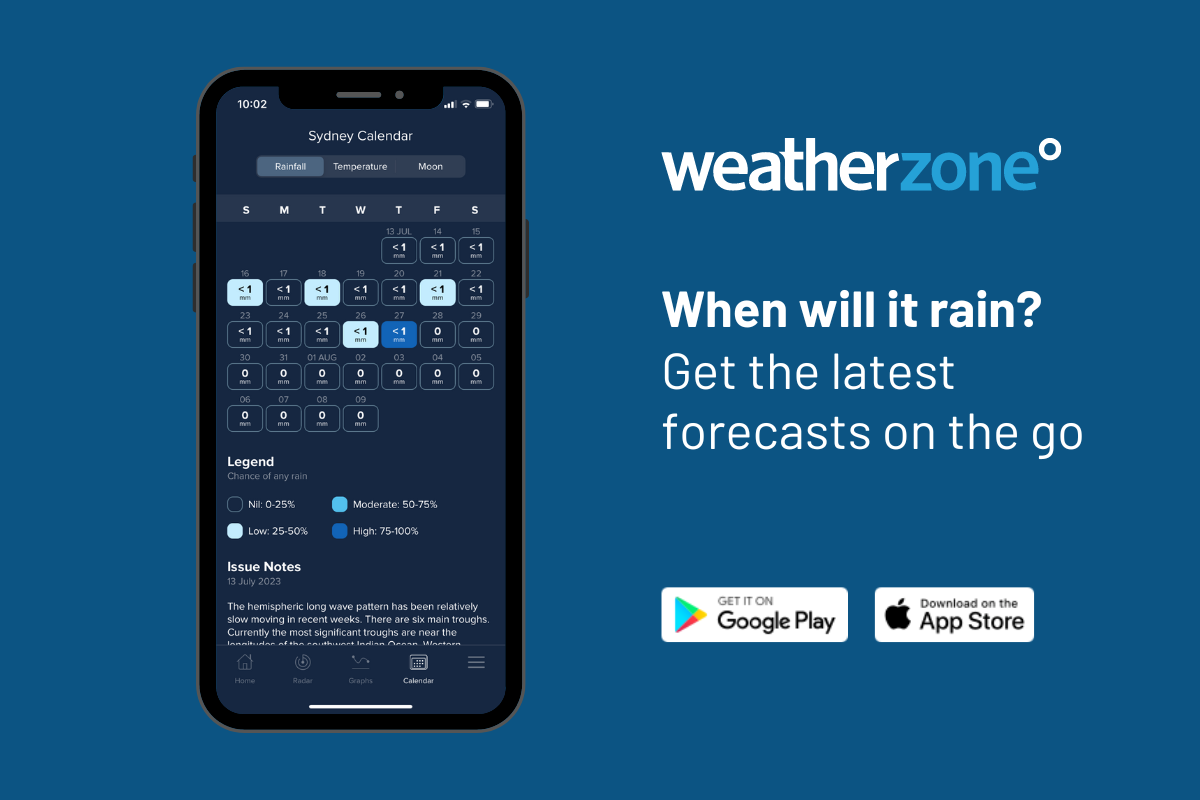Sydney's driest start to winter in 85 years
There has been a noticeable lack of rain in Sydney over the last few weeks, with the city having one of its driest starts to winter on record.
The opening weeks of winter are typically one of the wettest times of the year in Sydney, with June ranking as the wettest month based on historical rainfall.
The first half of this season, however, has been anything but wet.
Sydney’s Observatory Hill weather station only received 22.2 mm of rain between the start of June and 9am on Thursday, July 13.
With no rain expected to reach the gauge before 9am on July 15, the city is about to register its driest first half of winter since 1938 and its third driest on record, with data going back to 1859.
The only years that saw less rain during the first half of winter were 1938 (17.9 mm) and 1918 (14.6 mm).
Sydney’s lack of rain in recent weeks has been caused by a dominance of dry westerly winds and an absence of rain-bearing easterly winds. This wind regime is associated with a predominantly negative Southern Annular Mode (SAM) phase that has been occurring since early June and is still in place.
Another factor contributing to Sydney’s parched rain gauge is a lack of East Coast Lows and Tasman Lows this season. These low pressure systems can bring periods of heavy rain to the east coast of NSW in the cooler months of the year, and typically have a peak frequency in June. However, we haven’t seen any of these lows so far this winter.
The dry start to winter this year is a stark contrast to 2022. The city had already received 362.4 mm of rain by July 15 last year, which is more than 16 times the rain Sydney has seen in the first half of this winter.

Looking ahead, there are no signs of substantial rain in Sydney over the coming week.
Sydney’s driest winter on record was 42.9 mm in 1895.